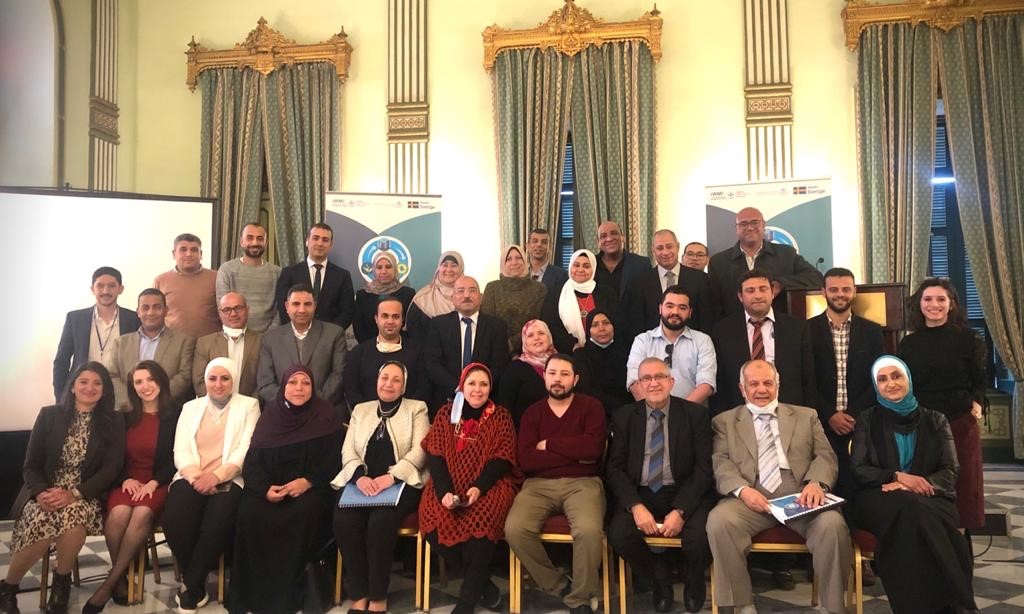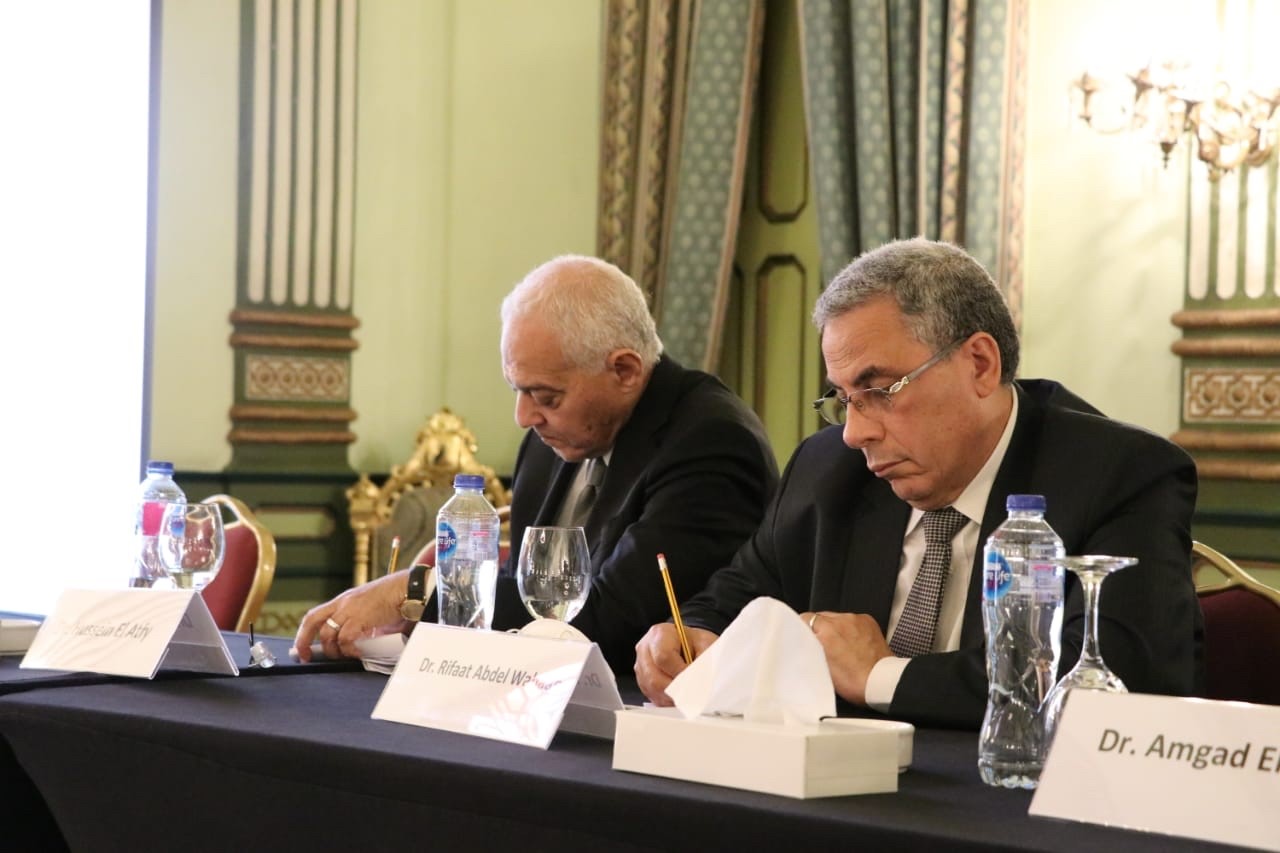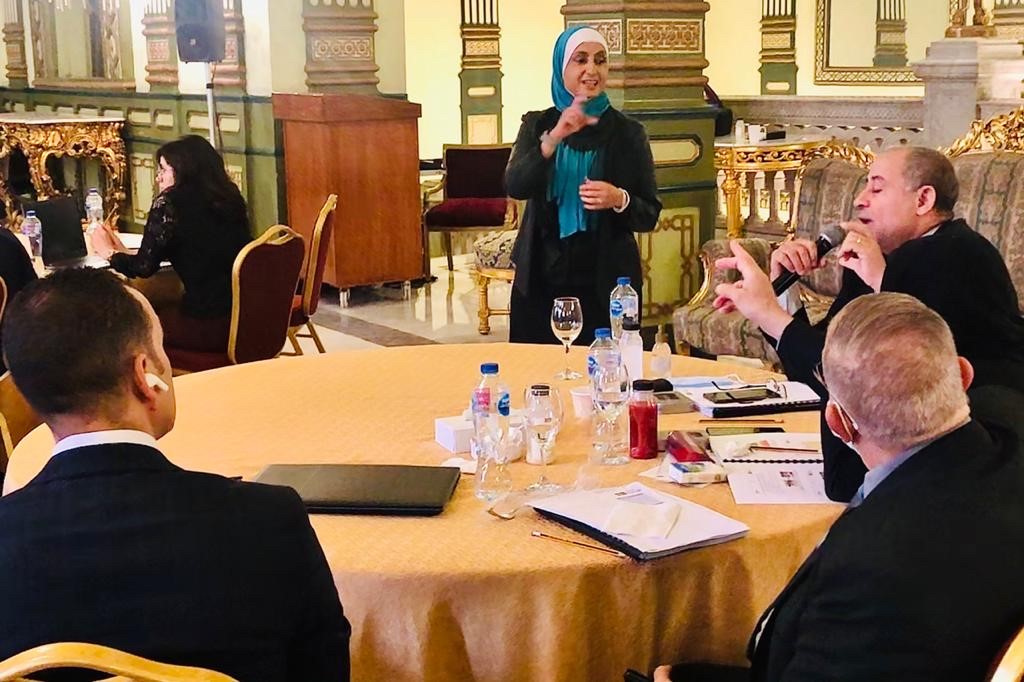IWMI organizes workshop for safe use of wastewater in Egypt

Cairo – 11 April 2021: The Safe Use of Wastewater workshop organized in Egypt this week will conclude on Sunday, which aimed to build and strengthen the capacities of different stakeholders and participants from Egypt in the field of safe use of wastewater.
The workshop was organized by the International Water management Institute (IWMI) – ReWater MENA project, in collaboration with Arab Countries Water Utilities Association (ACWUA) during the period April 4-11, 2021.

The workshop was built on four training modules, including: Stakeholders’ acceptance and gender integration in reuse interventions, assessing the Economic Feasibility for Integrated Wastewater Reuse (WWR) Projects: From Formulation to Reporting, Governance and Reuse Safety Plans, and Water Reuse Technologies.
The workshop was attended by different key stakeholders and governmental entities. Dr. Rifaat Abdel Wahaab, Head of Research and Development Sector at the Holding Company for Water and Wastewater (HCWW), said that the biggest challenge for indirect reuse in the Delta has been the mixed sources of waste streams that discharge untreated into agricultural drains. He also mentioned that Egypt's government plan is to treat and reuse drainage water at a large scale.

Wastewater presents a great potential for bridging the supply-demand gap as it is the only water source which increases as the population grows, as mentioned by Dr. Amgad Elmahdi, Head of IWMI MENA Office. He refers to wastewater as untapped resource. Thus, the use of treated wastewater (TWW) in agriculture is considered one of the most sustainable alternatives to cope with water scarcity, especially considering that agriculture accounts for 80% of the region’s freshwater withdrawals. He said that there are many challenges facing the use of treated wastewater in the Arab region, including social, institutional, economic, and cultural challenges. He assured on the need to deal with these challenges by developing plans and a road map for the three countries participating in ReWater MENA project, namely Egypt, Jordan and Lebanon.
Dr. Hussein El Atfy, Secretary-General of Arab Water Council (AWC), indicated that wastewater is the only sustainable water resource and it would be one of the main pillars in our pursue to overcome water scarcity challenges as there is a major threat towards the water and food security in Egypt and the Arab region, therefore we need to move faster to adopt unconventional water resources including treated wastewater.
Eng. Khaldon Khashman, the Secretary-General of ACWUA, emphasized ( through Video Conference) on the importance of the fields covered by the training course for the first time in the Arab region. He also mentioned that the Arab region lacks wastewater reuse safety plans that deal starting from the water coming out of homes through the water collection and purification system, throughout its safe use till the impact on water users.
Dr. Nisreen Lahham, the Regional Project Manager, said that ReWater MENA project aims to expand the safe use of the treated waste water in the Middle East and North Africa (MENA) region by addressing barriers to reuse and identifying validated reuse models through building the capacities of 400 trainees in the three countries, Jordan, Egypt and Lebanon. She stated that the expansion of treated wastewater reuse would offer an alternative solution to meet agricultural water demand, saving freshwater for domestic uses and ultimately coping with water scarcity. The workshop ended up today by delivering Certificates of Completion to all participants who attended the workshop and completed the four modules. ReWater MENA project is a regional project funded by the Swedish International Development Cooperation Agency (SIDA), and led by the International Water Management Institute (IWMI). The project is running in three countries in the MENA region; Egypt, Jordan and Lebanon, in partnership with many entities and organizations at the local, regional and international levels including: the Arab Countries Water Utilities Association (ACWUA), the Arab Water Council (AWC), the Center for Environment and Development for the Arab Region and Europe (CEDARE), Food and Agriculture Organization (FAO) of the United Nations, The Royal Scientific Society of Jordan (RSS), the Lebanese Agricultural Research Institute (LARI), and the International Center for Agricultural Research in the Dry Areas (ICARDA) in Egypt.
This article was originally published on www.egypttoday.com
